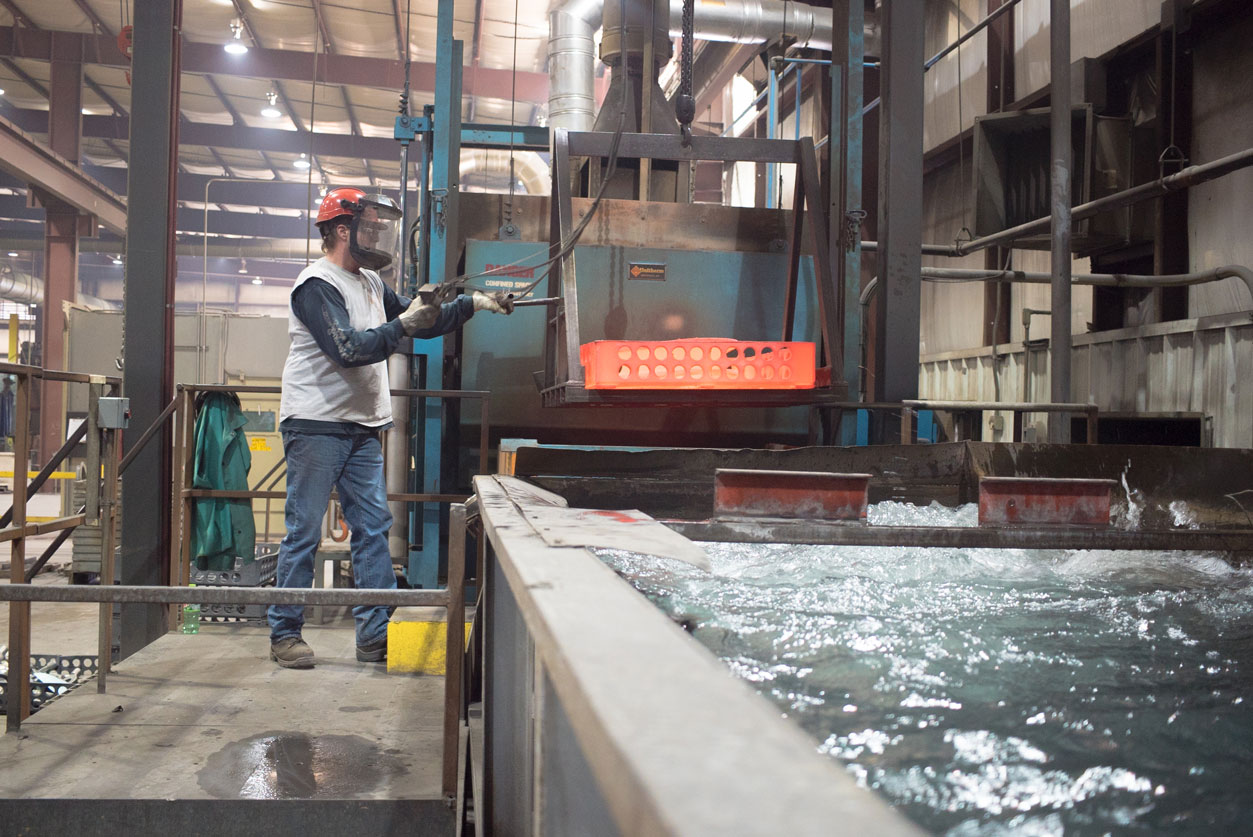Certain applications require steel parts to offer a combination of mechanical properties and high surface hardness. Omaha Steel partners with induction hardening and flame hardening experts to provide both rough and machined castings that will meet your needs. We provide superior castings, treated to achieve exactly the properties you need for proper performance in the most demanding applications.
The surface hardening process requires that only targeted areas of the casting get heated above transformation temperature. Rapid heating causes the part’s outer surfaces to reach temperatures above the transformation range while its inner areas remain below temperature. The part’s surface must be heated and held at temperature for a precise length of time to achieve the required depth of hardening. A rapid cooling of the part, known as quenching, is critical for producing the desired hardness. The core of the component remains unaffected by the process. Standard carbon and low-alloy steels (with greater than 0.35% carbon) respond quite well to this process.

The flame hardening process heats the casting surface with an oxy-fuel torch to temperatures above the transformation range. Multiple torches can be used to harden larger areas or intricate details. Moving the torches or the part itself aids in heat distribution. Carbon and low-alloy steel castings of nearly any shape and size can be hardened using this process. The flexibility of the process makes it well suited for smaller production volumes and has the advantage of being able to harden large flat surfaces.
During induction hardening, the casting (or just the portion to be hardened) gets placed inside of a copper coil. An alternating current applied to the coil induces a magnetic field. The magnetic field raises the temperature of the outer surfaces above the transformation temperature. Induction hardening is especially useful for parts with irregular geometries, for larger production volumes, or if a greater depth of penetration is required.
Whether your part requires induction or flame hardening, Omaha Steel offers a solution to meet your needs. Combining our casting know-how with the experience of our staff metallurgists and expert partners ensures our surface hardening processes meet your specifications.
Seeing in person how we implement our processes, and how they contribute to quality castings, can go a long way towards making the right decision. Schedule a tour with Omaha Steel, and we’ll give you an in-depth look at our commitment to quality.